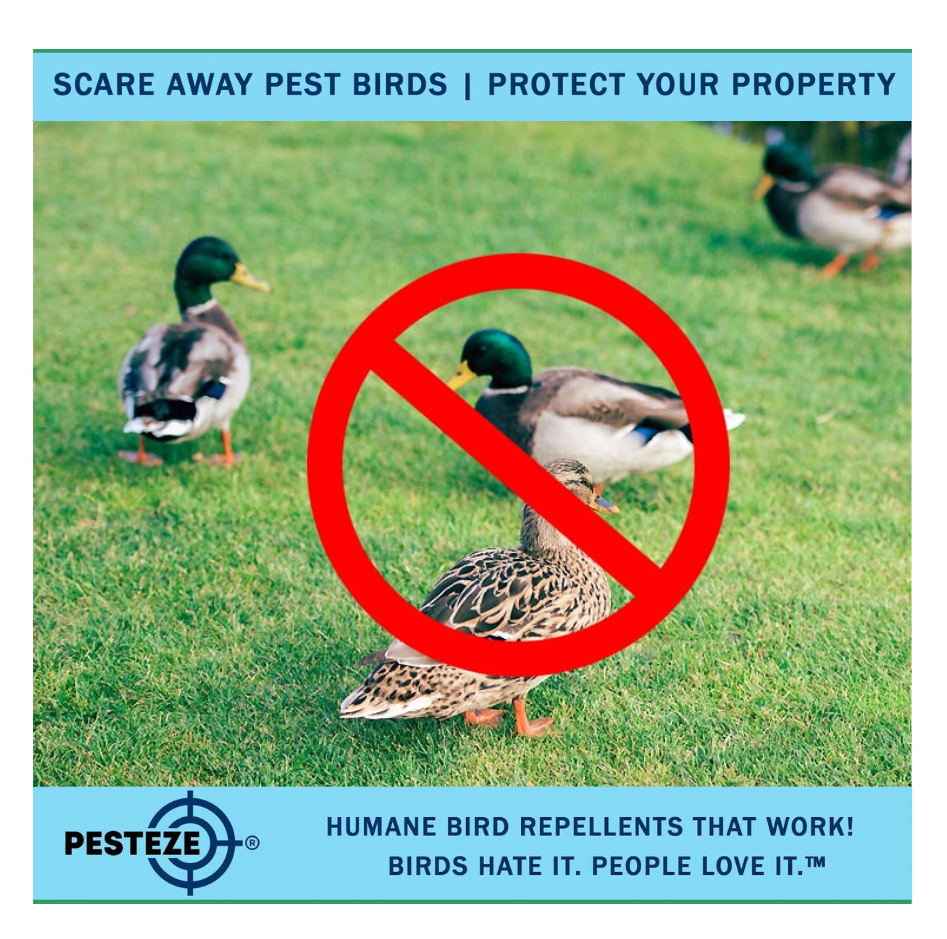HOW TO DETER DUCKS: HUMANE AND EFFECTIVE SOLUTIONS!

HOW TO DETER DUCKS: HUMANE AND EFFECTIVE SOLUTIONS!
SUMMARY
Ducks can be charming to observe but may cause problems in gardens, yards, and ponds. To keep ducks away while maintaining a harmonious environment, explore various humane strategies that effectively deter them.
FEATURES
- Physical Barriers: Use fences or netting to restrict access to gardens and water sources.
- Motion-Activated Sprinklers: Install sprinklers that activate with movement to scare ducks away.
- Decoys: Place predator decoys, such as owls or foxes, to create a sense of danger.
- Taste Aversion: Apply non-toxic, bird-safe repellents to make food sources less appealing.
- Noise Makers: Utilize noise deterrents, such as bells or wind chimes, to keep ducks at bay.
- Water Management: Modify water features to make them less attractive to ducks.
DESCRIPTION
Ducks can add beauty and life to natural settings, but they can also become a nuisance, particularly in gardens, yards, and around ponds. If you're dealing with duck overpopulation or unwanted visits, there are several humane and effective strategies to keep them at bay.
One of the most straightforward methods is to implement physical barriers. Installing fences or netting around gardens or water sources can prevent ducks from accessing areas you want to protect. Ensure that the fence is tall enough (at least 3-4 feet) and buried a few inches underground to deter digging.
Another effective strategy is to use motion-activated sprinklers. These devices detect movement and release a sudden spray of water, startling ducks and encouraging them to leave the area. This approach is not only effective but also harmless to the birds and can provide hydration to your plants simultaneously.
Incorporating decoys can also help deter ducks. Placing realistic predator decoys, such as owls, hawks, or foxes, around your yard can create an illusion of danger that ducks will instinctively avoid. It's essential to move the decoys periodically to maintain their effectiveness, as ducks can become accustomed to static objects.
Taste aversion is another method to consider. Non-toxic, bird-safe repellents can be applied to areas where ducks may feed. These substances make the food less appealing, encouraging ducks to seek alternative sources elsewhere. Always ensure that the repellents used are safe for both birds and other wildlife.
Using noise makers can be an effective deterrent as well. Sounds that are unusual or irritating to ducks, such as bells, wind chimes, or even recorded distress calls, can create an unsettling environment for them. This method can be particularly useful in residential areas where visual deterrents may not be as practical.
Finally, managing your water features can make them less attractive to ducks. Reducing the depth of ponds, keeping the water clean, and removing any food sources (such as algae or insects) can discourage ducks from settling in. If possible, consider adding vegetation or barriers around the water's edge to make access more difficult.
By employing a combination of these humane deterrence strategies, you can effectively keep ducks away from your property while ensuring their safety and preserving the natural environment.
- Tags: Bird Control Guide
- Maanas Mehta


Comments 0